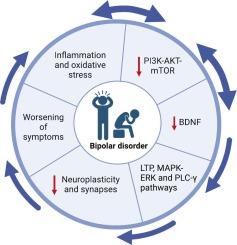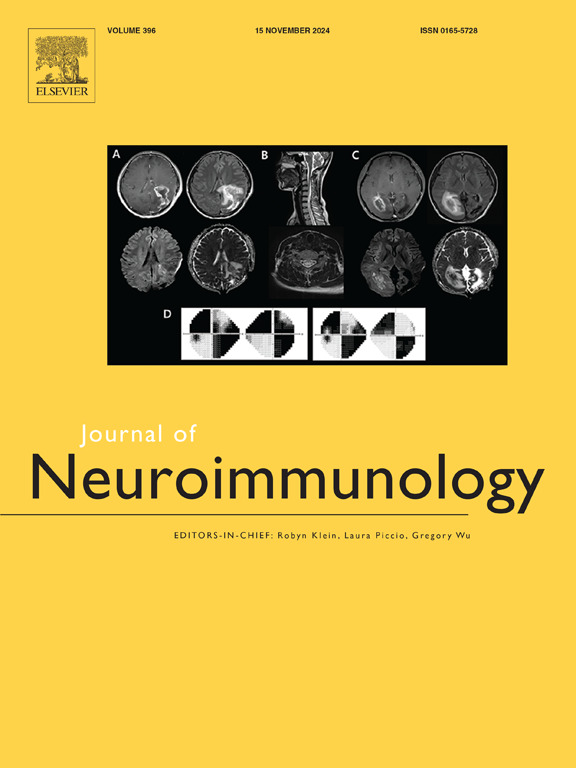The contribution of mTOR to the immunopathology of bipolar disorder
IF 2.5
4区 医学
Q3 IMMUNOLOGY
引用次数: 0
Abstract
The mammalian target of rapamycin (mTOR) has a role in immune regulation and neuroplasticity within the brain, influencing various neurological and psychiatric disorders, including bipolar disorder. mTOR signaling, via two complexes, mTORC1 and mTORC2, modulates immune responses by regulating microglial activation, cytokine production, and T-cell function. Dysregulation of these pathways leads to neuroinflammation, a hallmark of several neurological conditions. In bipolar disorder, mTOR affects neuroplasticity by modulating brain-derived neurotrophic factor (BDNF) levels and synaptic remodeling, essential for mood stabilization. Reduced mTOR signaling during depressive episodes and increased activity during manic phases have been observed, with potential links to the cognitive and emotional deficits characteristic of bipolar disorder. This review aims to compile the contribution of mTOR signaling to the immunopathology of bipolar disorder, focusing on its role in immune modulation, neuroinflammation, and neuroplasticity.

mTOR对双相情感障碍免疫病理的贡献
哺乳动物雷帕霉素靶点(mTOR)在大脑内的免疫调节和神经可塑性中发挥作用,影响各种神经和精神疾病,包括双相情感障碍。mTOR信号通过mTORC1和mTORC2两个复合物,通过调节小胶质细胞激活、细胞因子产生和t细胞功能来调节免疫应答。这些通路的失调会导致神经炎症,这是几种神经系统疾病的标志。在双相情感障碍中,mTOR通过调节脑源性神经营养因子(BDNF)水平和突触重塑来影响神经可塑性,这对情绪稳定至关重要。抑郁症发作时mTOR信号减少,躁狂期mTOR活动增加,这与双相情感障碍的认知和情感缺陷特征有潜在联系。本文旨在综述mTOR信号在双相情感障碍免疫病理中的作用,重点介绍其在免疫调节、神经炎症和神经可塑性中的作用。
本文章由计算机程序翻译,如有差异,请以英文原文为准。
求助全文
约1分钟内获得全文
求助全文
来源期刊

Journal of neuroimmunology
医学-免疫学
CiteScore
6.10
自引率
3.00%
发文量
154
审稿时长
37 days
期刊介绍:
The Journal of Neuroimmunology affords a forum for the publication of works applying immunologic methodology to the furtherance of the neurological sciences. Studies on all branches of the neurosciences, particularly fundamental and applied neurobiology, neurology, neuropathology, neurochemistry, neurovirology, neuroendocrinology, neuromuscular research, neuropharmacology and psychology, which involve either immunologic methodology (e.g. immunocytochemistry) or fundamental immunology (e.g. antibody and lymphocyte assays), are considered for publication.
 求助内容:
求助内容: 应助结果提醒方式:
应助结果提醒方式:


